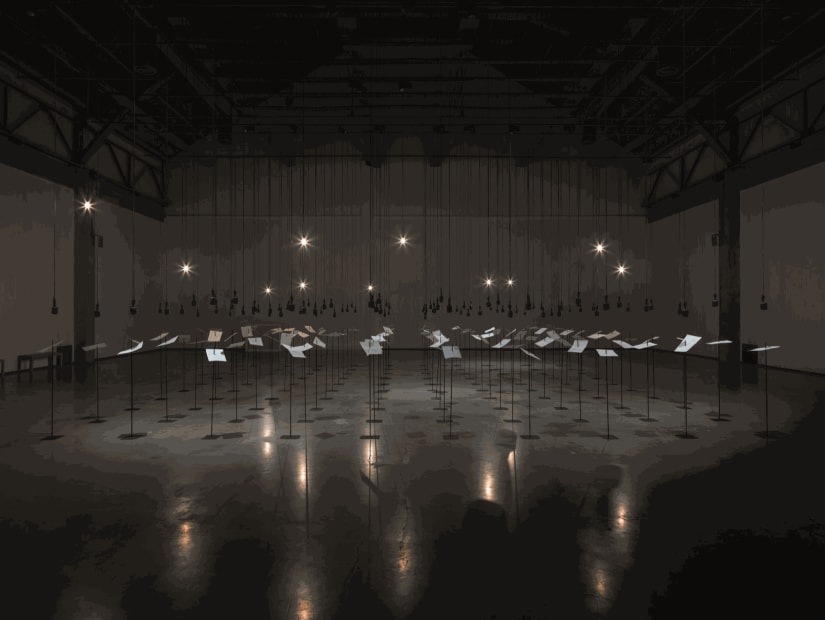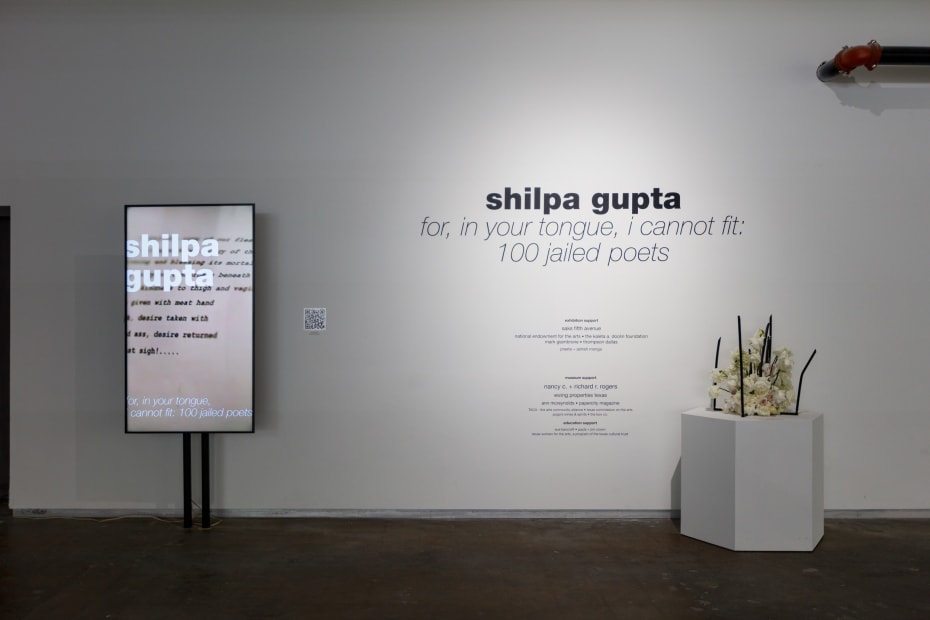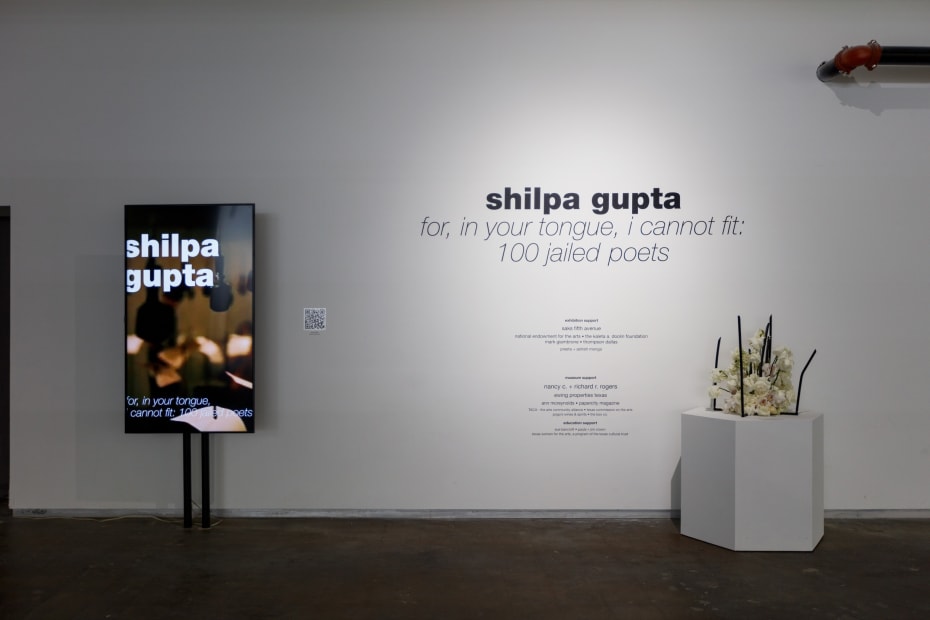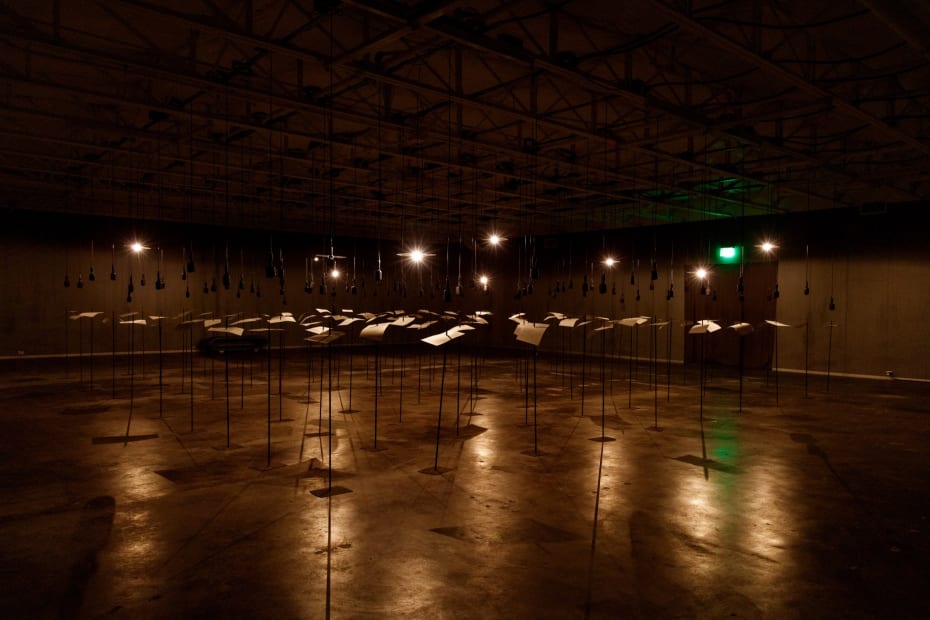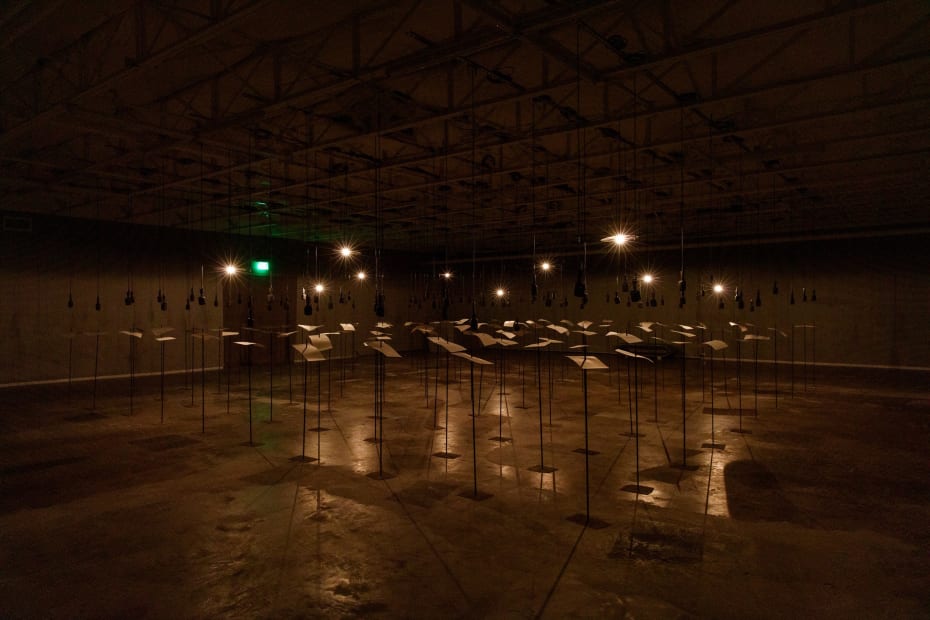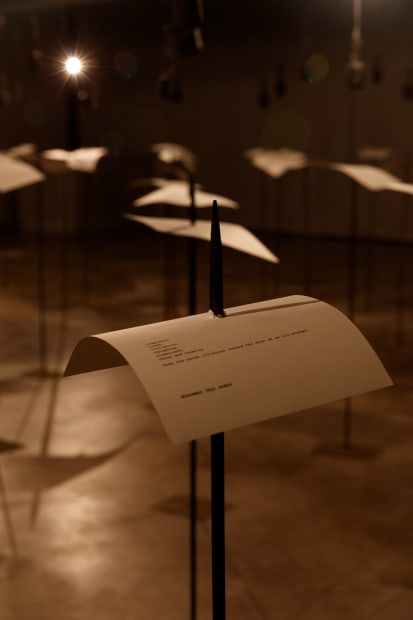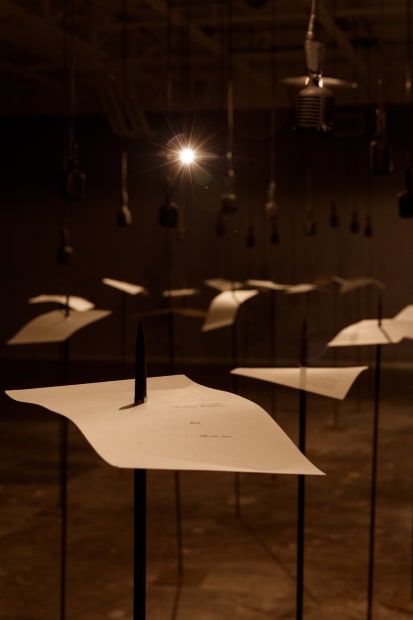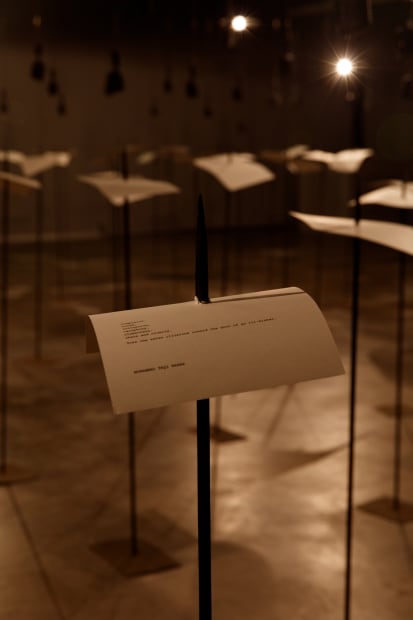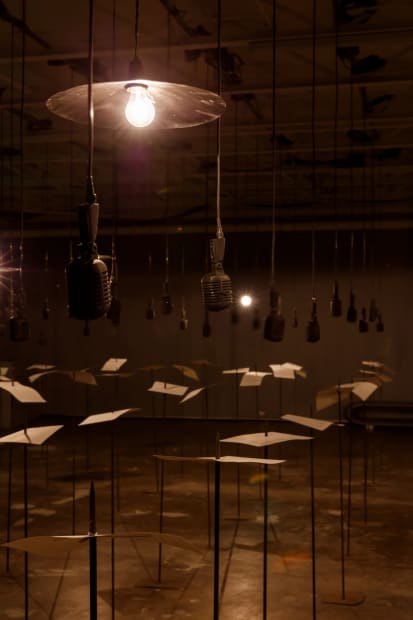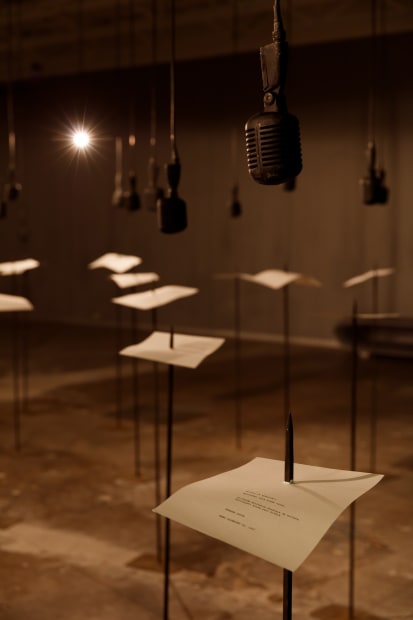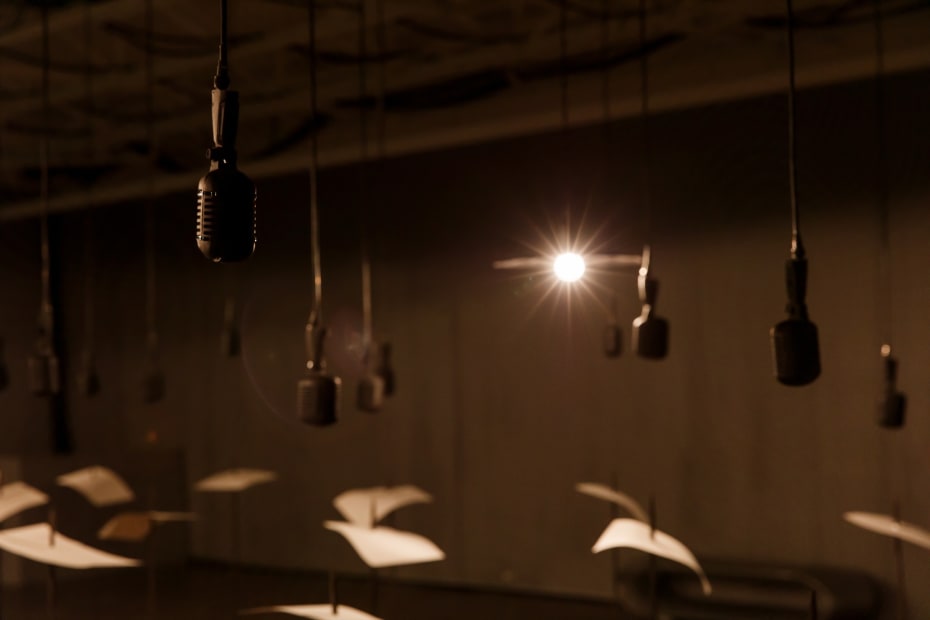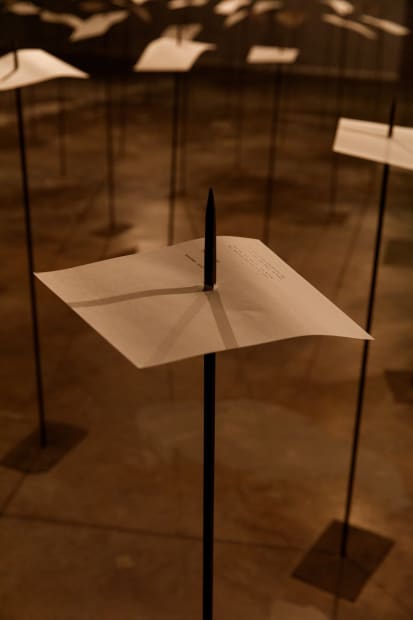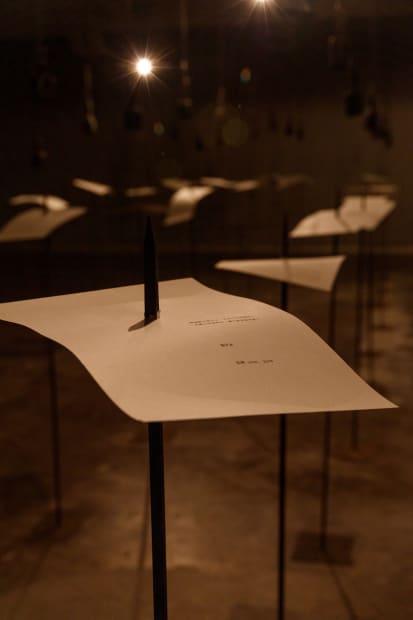Shilpa Gupta’s multi-channel immersive sound installation For, In Your Tongue, I Cannot Fit is the outcome of a years-long research project into persecuted poets across time and geographies.The physical installation spans over 3,000 square feet and includes 100 microphones suspended from the ceiling. They play an audio loop of snippets of poems whose authors have been subjected to imprisonment, detainment, and execution. The poems are dated from the eighth century to contemporary times and are read in languages including English, Spanish, Arabic, Russian, Azeri, and Hindi, allowing visitors to experience over a thousand years of global poetry in an hour. With this work, Gupta gives the microphone back to those who were rendered voiceless. As the artist put it herself, "Often, as it is happening right now, the voices of the truth cause discomfort and are cut off, yet the echo remains and continues to be heard.”
For over two decades, Mumbai-based artist Shilpa Gupta has explored how best to incorporate elements of sound into her work. The artist's background in computer science, design, and new technology shaped her interest in expanding the parameters of what art can be. One of her signatures is a reverse-wired microphone that operates as a speaker. First utilized in her 2008 work In Our Times, Gupta has repeatedly returned to this mechanism over her career. Her sound installations require her viewers to actively listen, allowing the artist to engage more directly with her audience about charged topics such as colonialism, borders, diversity, inclusion, and power of speech. In a 2010 interview with Amar Kanwar, the artist affirmed her belief in the power of participatory art, saying, "The possibility of a shift in perception via an art process is something that has always made me believe that art can indeed create residue in the memory; that it can question and even slightly challenge preconceived notions. Interactivity, especially at a one-to-one level, is a great means of moving towards this." Unlike most interactive art, rather than the viewer changing the artwork, the goal is for the artwork to change the viewer.
Recently displayed in the Arsenale at the 58th Venice Biennale in 2019 and on view in America for the first time, the work’s resonance will take on a new meaning with an audience that either takes their freedom of speech for granted or warps the First Amendment to fit a political agenda. As one of the most important artists in India, Gupta’s work reflects language as a tool of power that different states continually have tried to control. These 100 poems are small gestures of resistance that celebrate the power of language and the significance of the freedom of speech.
The exhibition is curated by Emily Edwards, Assistant Curator.
